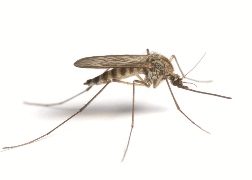19 March 2013
 Our loss of exposure and interaction with natural biodiverse environments is creating health issues and diseases which were not recognised a century ago, health expert Professor Philip Weinstein warns.
Our loss of exposure and interaction with natural biodiverse environments is creating health issues and diseases which were not recognised a century ago, health expert Professor Philip Weinstein warns.
Prof Weinstein, Dean of Graduate Studies at the University of South Australia, will highlight the risks that urbanisation and increased sterile environments play in upsetting natural biodiverse ecosystems, as well the body’s ability to ward off infectious diseases, in a Knowledge Works lecture.
“We evolved in an environment more closely linked with nature, depending on it for food, fibre, fuel and shelter, so we learnt to live and interact with the natural environment in ways which we no longer do,” says Prof Weinstein.
“There are ill-effects which result from that. The move from a hunter gather lifestyle to a more sedentary existence where you can pick up your dinner from a supermarket shelf has created obesity problems.
“One school of thought is that living in urbanised, sterile environments means we are less exposed to allergens and bacteria – which previously kept our immune systems busy.
“As the immune systems of people get bored they over-react to the slightest trigger which may be why we have so many allergies in the community now.”
During his lecture Prof Weinstein will examine the impact of Ross River virus – a mosquito borne infectious disease. It is an area of research that UniSA PhD student Emily Johnston is examining across Adelaide.
By trapping mosquitoes, identifying them to species, testing whether they are infected with Ross River virus and using genetic techniques to identify which animals the mosquitoes fed upon, Ms Johnston is hoping to build up a geographic picture of how the virus is distributed across urban and rural areas.
“My research will examine how urbanisation has altered the biodiversity of the mosquito and the animal host communities and whether that has led to an increased risk of human infection with Ross River virus,” says Ms Johnston.
Prof Weinstein highlights Ms Johnston’s research as a strong local example of how urbanisation can affect biodiverse environments.
“We’ve analysed one situation where we know that biodiversity does impact on transmission of Ross River virus, which is salinized areas of Western Australia and we are asking the same question in Adelaide to see how urbanisation affects it,” he says.
“A lot of diseases are trivial if you get them when you are little but can be more severe when you are an adult. Ross River Virus is an example of this.
“By removing the biodiversity – building houses, draining swamps, using mosquito screens - fewer children are bitten by mosquitoes, so there is less exposure to the virus. But as adults, without natural built up immunity, if there is exposure to the virus, its effects are more problematic. We’ve created a public health problem where there wasn’t one before.”
Knowledge Works lecture: Healthy ecosystems equals healthy humans will be held in the Basil Hetzel Building, Frome Road, City East campus on March 21, 6pm-7pm.
Contact: Professor Philip Weinstein office 830 25129
Media contact: Will Venn office 8302 0965 email Will.Venn@unisa.edu.au



